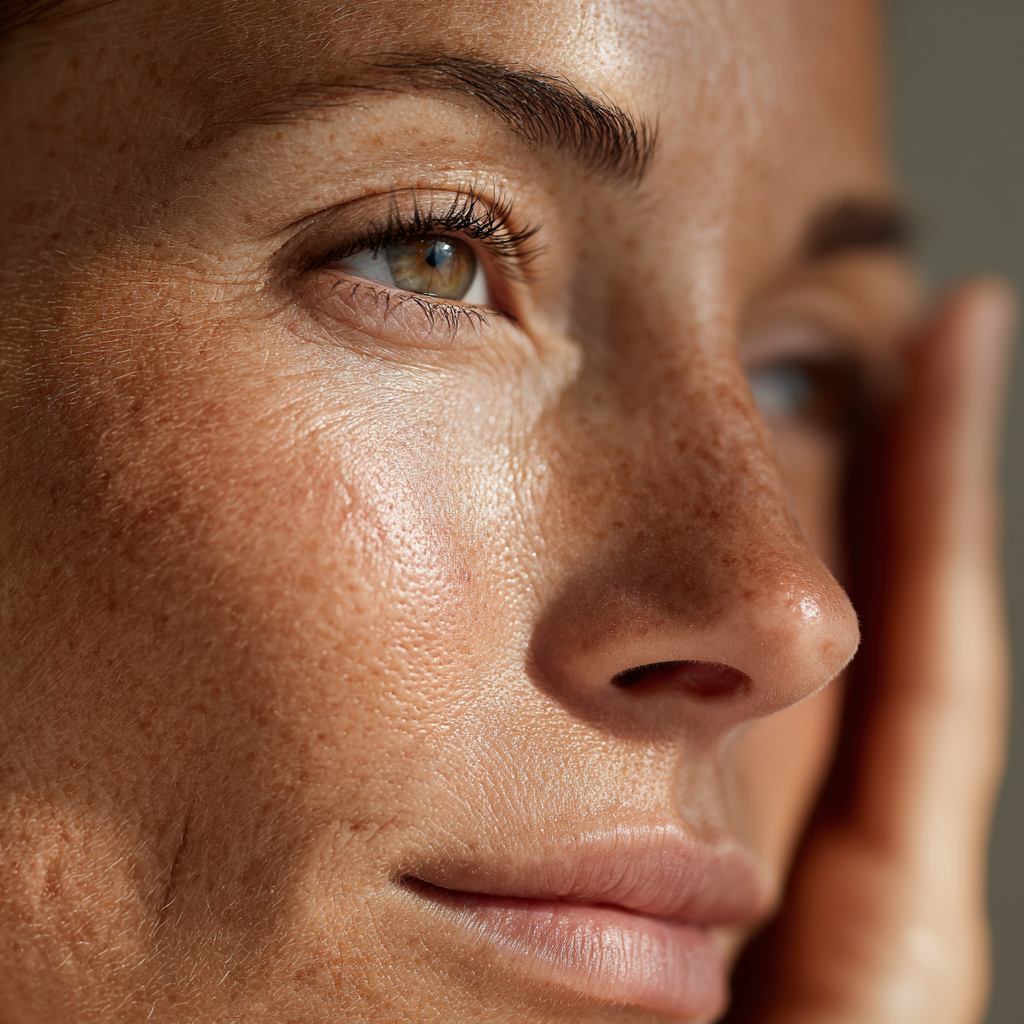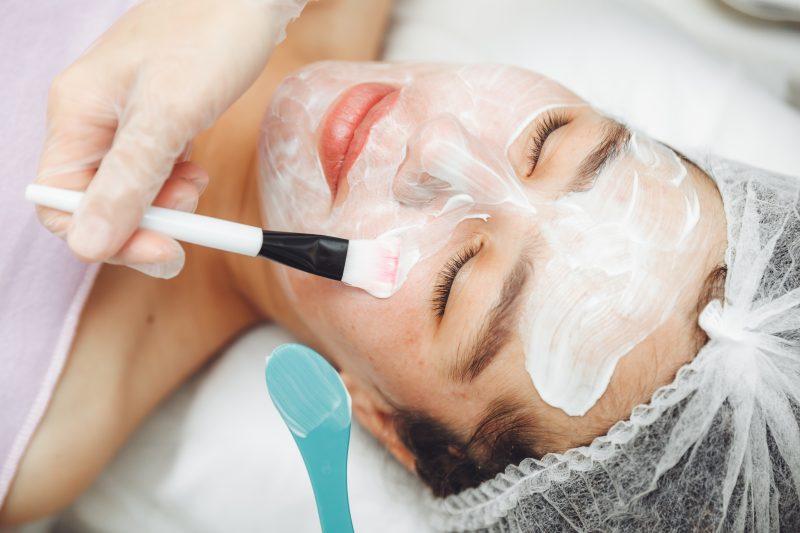Skincare
What Collagen Really Does for Your Skin After 30
By the time you hit 30, you may still look youthful, but subtle changes start to creep in. Your skin might not bounce back the way it used to or fine lines seem to linger longer and makeup doesn’t sit quite the same way. Behind the scenes, collagen production is slowing down. And your skin barrier is starting to show signs of strain.
Collagen is often celebrated as the secret to youthful skin. But what does it actually do? And more importantly, what happens when you start to lose it?
Collagen’s Real Role in Skin Health
Collagen is a structural protein, and it acts like scaffolding beneath the skin. It provides firmness, elasticity, and resilience. In your teens and twenties, your body produces plenty of collagen. But after age 25, production gradually begins to decline.
By your 30s, that decline becomes more noticeable. Skin begins to thin slightly. It may bruise more easily. Wrinkles and lines begin to take shape. The drop in collagen is slow, but it’s steady. According to a study published in the American Journal of Pathology, skin collagen content decreases by approximately 1% per year after age 30.
Collagen isn’t just about wrinkles. It also impacts hydration, barrier strength, and the skin’s ability to repair itself. When collagen levels fall, your skin isn’t just aging – it’s becoming more vulnerable.
The Skin Barrier Begins to Break Down
The skin barrier is a complex structure that protects you from environmental threats like sun, air pollution and pollen. It also prevents water loss and keeps your skin hydrated. When collagen declines, this barrier weakens. Cracks can form between skin cells, making skin more prone to dryness, irritation, and inflammation.
You might notice flakiness. You may start to feel more reactive to skincare products. This sensitivity isn’t always about allergies – it can be a sign your skin is struggling to maintain its defenses. As collagen decreases, so does skin thickness. Thinner skin is less effective at holding in moisture. It also reflects less light, which can make skin look dull or tired.
The Difference Between Hydrolyzed and Soluble Collagen
Skincare brands often highlight collagen on their ingredient lists, but not all collagen is the same. Two common forms used in topical products are hydrolyzed collagen and soluble collagen.
Hydrolyzed collagen is collagen that’s been broken down into smaller peptides. These peptides are tiny enough to potentially penetrate the upper layers of the skin. The idea is that they can support the skin’s natural repair process, and encourage hydration.
Soluble collagen, on the other hand, is usually a large molecule that sits on the surface of the skin. It doesn’t penetrate, but it can form a film that temporarily improves skin texture and softness.

Which One Is Better?
Neither form replaces the collagen you naturally lose. That’s a common misconception. However, they can support the appearance of healthier skin in different ways.
Hydrolyzed collagen may be more active in promoting hydration and elasticity. Its peptide form makes it easier for the skin to use, especially in formulas combined with other barrier-supporting ingredients like hyaluronic acid or ceramides.
Soluble collagen can improve surface-level smoothness. It may not affect deeper skin structures, but it creates a soft, conditioned finish that can improve the feel of the skin.
If you’re choosing between the two, look at your skin’s needs. If dryness and early lines are your main concern, hydrolyzed collagen might offer more meaningful benefits. If you’re after a product that boosts comfort and texture right away, soluble collagen could be useful.
Collagen Supplements vs Topicals
In recent years, ingestible collagen has gained popularity. Collagen peptides in powder or capsule form may stimulate your body’s own collagen production. One double-blind placebo-controlled study published in Skin Pharmacology and Physiology found that women who took collagen peptides daily for eight weeks showed improved skin elasticity compared to a placebo group.
Topical collagen, by contrast, mainly works on the skin’s surface. It won’t rebuild your deeper dermal matrix, but it can still hydrate and improve how skin looks and feels. The best approach may be to combine both: oral collagen for internal support, and topical collagen formulas to enhance skin comfort and hydration from the outside.
What Else Supports Collagen Maintenance After 30
Collagen isn’t produced in isolation. Your body needs certain nutrients and environmental support to maintain it. Vitamin C is essential for collagen synthesis. Without it, your body can’t form the triple helix structure that makes collagen strong. Topical products with stabilized vitamin C can help, and so can a diet rich in citrus, berries, and leafy greens.
Retinoids, including retinol, help stimulate collagen production by increasing cell turnover. They also help firm the skin and reduce the depth of wrinkles over time.
Peptides, especially copper peptides and palmitoyl pentapeptides, have been shown to improve the skin’s natural collagen activity when used consistently.
And don’t forget sunscreen. UV exposure breaks down collagen faster than aging alone. Daily SPF use is non-negotiable if you want to preserve what you have.
Signs That Collagen Is Declining
You might be losing collagen without realizing it. Here are a few signs:
- Skin looks thinner or more fragile
- Lines appear faster and last longer
- Skin feels drier or rougher despite moisturizing
- You bruise more easily
- Your face starts to lose volume, especially around the cheeks and under the eyes
These shifts are subtle at first. But they become more obvious over time. Taking action early – before collagen is significantly depleted – offers the best chance at slowing the visible effects.
Can You Rebuild Lost Collagen?
You can’t fully replace what’s gone, but you can support new production and slow the breakdown. Consistent skincare habits, sun protection, and targeted ingredients help you maintain skin that looks and feels stronger.
Some cosmetic treatments, like microneedling or radiofrequency, can boost collagen by triggering a wound-healing response. These are more aggressive options, but they can be effective for deeper structural support. At home, daily care matters most. Look for ingredients that support your barrier, boost hydration, and work in harmony with your skin.

FAQs
Can collagen creams actually penetrate the skin? Not fully. Most collagen molecules are too large. Hydrolyzed collagen has a better chance of reaching the upper layers of the epidermis, but even then, it won’t reach the dermis.
Does taking collagen supplements help your skin? Yes, studies show that oral collagen peptides may improve skin elasticity and hydration. But effects vary depending on the source and how your body absorbs it.
Is collagen loss permanent? You can’t stop it entirely, but you can slow the process. Skincare, sun protection, and nutrition all play a role in preserving collagen levels.
How soon can I expect results from collagen skincare? Surface improvements like hydration and softness can be seen quickly, sometimes in a few days. Structural changes take longer, often weeks or months.
Is collagen safe for all skin types? Generally, yes. Most topical collagen products are gentle. However, people with sensitive skin should always patch test new formulas to avoid irritation.





